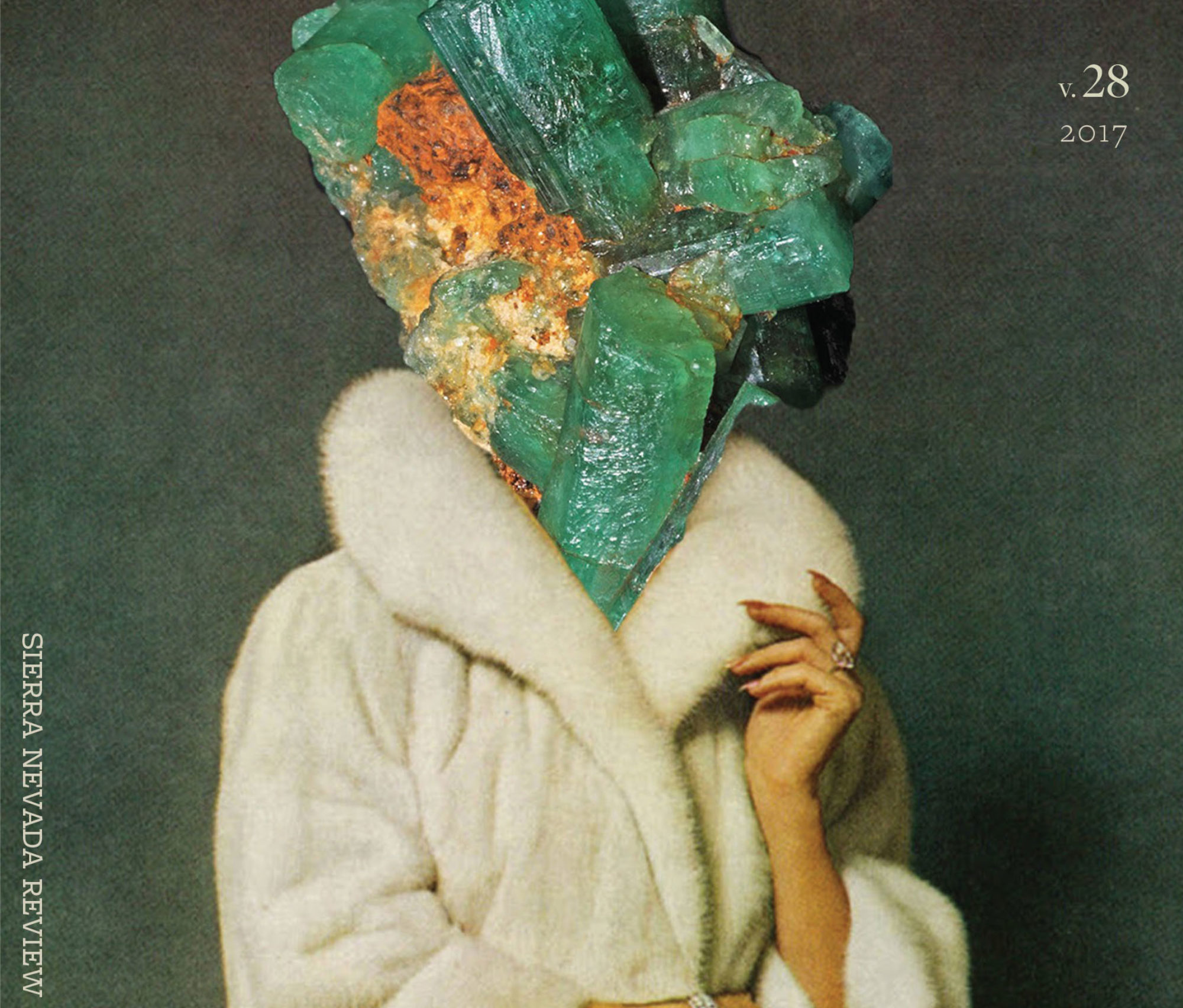Anna Weaver was a finalist for the Turner Prize in the Spoken Word category. Her poem can be found in the 2017 issue of the Sierra Nevada Review.
Hannah Harris: Why do you write?
Anna Weaver: Because when I think have something to say, I enjoy the work of finding what feels like a true way of saying it. Because diction and grammar and punctuation and etymology and tropes and forms are my enduring intellectual loves. Because of the feeling when you stick the exquisite balance between following and breaking rules. And because I love both the invention and the tinkering that comes after, interrogating commas and whatnot, to get all the pieces in place.
HH: A piece of writing is, essentially, a collection of the series of choices the writer has made. How do you make the final choice: deciding when a piece of work is done? How do you know when something you’re working on is ready?
AW: I rely heavily on how it sounds out loud and on reading it to people live. I have a very close friend and fellow poet who serves as a kind but honest first listener. He’s got a keen ear for lines that aren’t doing any work and other missed opportunities, and we value the same aesthetic so if I’m hitting notes the way I want to, he’ll hear them and it shows in his eyes.
After it passes that test, I typically perform it at my local open mic. The audience reaction, or lack thereof, will often expose the good and the weak. And even if they don’t react, I hear it differently when I know someone else is listening…much like you notice your own house acutely when unexpected guests come over.
Lastly, as a performance poet, I memorize most of my work. During the week or so of constant repetition it takes to commit a poem to memory, any loose or missing words will announce themselves. That’s the very last step, almost always (though there have been exceptions).
Once memorized, a poem tends to stay put.
HH: Likely all of us can point to other writers who inspire us, but what, outside of literature, compels you as a writer? Where do you encounter, or glean, the motivation to work in your daily life?
AW: Chiefly from open mic events. I run one locally and have been to others from Southern California to Maine and parts in between. Every time, I’m surprised at what my city or another has to offer by way of creative obsession and talent.
These are people with day jobs, but at night and on weekends and between shifts, we write songs and stories and poems and I doubt any of us knows quite why. It’s damn sure not for money, and it’s not because we don’t need the sleep.
I get energy from them. I get ideas, too. Killer lines, juicy words, new ways to look at old things. And I get a kind of permission to keep trying from their persistence and from the camaraderie and what, to me, amounts to a kind of artistic love affair with each other.
HH: What are you reading right now?
AW: Stephen King’s On Writing and the latest issue of Rattle and A Man Called Ove.
HH: The idea of being a writer and the act of writing are two very distinct things. How has your perception of what it means to be a writer changed over time?
AW: My father is a fiction writer who had some critical success (NEA grants, The O’Henry Prize, a movie made of his first novel, that sort of thing). So I was imprinted literally from birth with the idea that being a writer was an Actual Job, not some ephemeral business of muses or dreamy bliss- or truth-seeking.
You went to your office all week (he was Chair of the English Department at Oklahoma State), and at night/on weekends you either sat on the couch Reading Manuscripts while watching sports or closed the door to your office and Made Typing Noises. Your briefcase was full of Writing, yours and other people’s. Your friends were all Writers. And from time to time, boxes of Your Books turned up at the house, and you went to bookstores and Gave Readings.
I also write for a living (marketing content for a software company). I do my creative writing nights and weekends and I read my work to audiences. I do the work of submitting, with some success, which gives me tangible proof to arrange on a shelf and share with friends—most of whom are also poets or songwriters—and some sense of having passed a test.
For me, “being a writer” comes down to the doing—not some wistful philosophizing. So although it took me a couple years of that doing to feel comfortable saying “I’m a poet,” the idea of being a writer, for me, hasn’t changed much in 49 years.
If I’m doing the work of writing, I’m a being a writer.
***
Raised in Oklahoma, Anna Weaver writes as a former soldier in the US Army Reserve, a mind solidly imprinted by 20 years under big sky, and a woman “with loyalties scattered over the landscape.” Her poems have appeared in Connotation Press, O-Dark-Thirty, One, Rat’s Ass Review, and elsewhere, earning nominations for the Pushcart Prize, Best of the Net, and Best New Poets award. An avid performance poet, she runs an open mic in Raleigh and has performed her poetry in 27 states and the District of Columbia. So far as Google is concerned, Anna is America’s only open mic tourist. She lives in North Carolina with her two daughters. Find her at openmictourist.com.

Thanks for your words and kind help. I also like website money. My best one to like so far is million dollar funnel.
million dollar funnel Review
google porn porn google
Best movie i have ever seen !